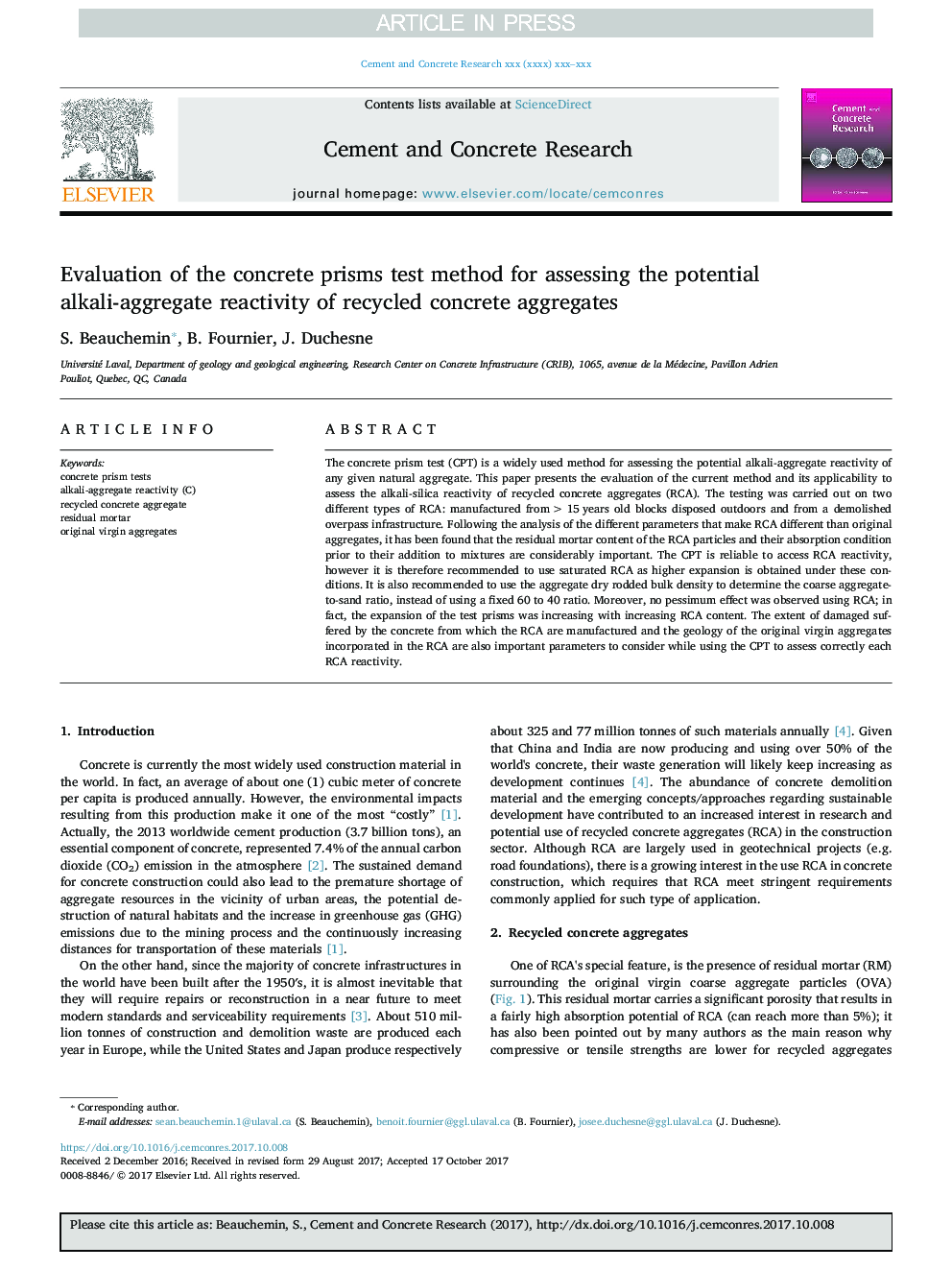| Article ID | Journal | Published Year | Pages | File Type |
|---|---|---|---|---|
| 7884853 | Cement and Concrete Research | 2018 | 12 Pages |
Abstract
The concrete prism test (CPT) is a widely used method for assessing the potential alkali-aggregate reactivity of any given natural aggregate. This paper presents the evaluation of the current method and its applicability to assess the alkali-silica reactivity of recycled concrete aggregates (RCA). The testing was carried out on two different types of RCA: manufactured from >Â 15Â years old blocks disposed outdoors and from a demolished overpass infrastructure. Following the analysis of the different parameters that make RCA different than original aggregates, it has been found that the residual mortar content of the RCA particles and their absorption condition prior to their addition to mixtures are considerably important. The CPT is reliable to access RCA reactivity, however it is therefore recommended to use saturated RCA as higher expansion is obtained under these conditions. It is also recommended to use the aggregate dry rodded bulk density to determine the coarse aggregate-to-sand ratio, instead of using a fixed 60 to 40 ratio. Moreover, no pessimum effect was observed using RCA; in fact, the expansion of the test prisms was increasing with increasing RCA content. The extent of damaged suffered by the concrete from which the RCA are manufactured and the geology of the original virgin aggregates incorporated in the RCA are also important parameters to consider while using the CPT to assess correctly each RCA reactivity.
Keywords
Related Topics
Physical Sciences and Engineering
Engineering
Industrial and Manufacturing Engineering
Authors
S. Beauchemin, B. Fournier, J. Duchesne,
